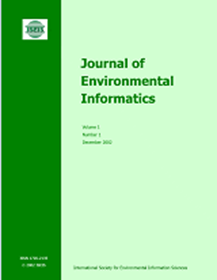Optimal Configuration and Planning of Distributed Energy Systems Considering Renewable Energy Resources
IF 5.4
1区 环境科学与生态学
Q1 ENVIRONMENTAL SCIENCES
引用次数: 0
Abstract
With increasing electricity demand, conventional centralized power generation systems encounter numerous challenges, including transmission and distribution losses, limited capacity, and high operational costs. In response, distributed energy systems have emerged as a promising solution by enabling electricity generation in close proximity to consumption points. These systems leverage renewable energy sources and minimize energy losses during transmission, presenting a more sustainable and efficient alternative. By utilizing diverse energy sources such as solar thermal panels, photovoltaic systems, geothermal energy, distributed energy systems enhance overall efficiency, and reduce power losses during transmission as well as greenhouse gas emissions. This research endeavor presents a novel approach employing mixed-integer linear programming to optimize distributed energy systems. The proposed model facilitates the determination of optimal dimensions of technologies, including combined heat and power systems, boilers, electric chillers, and absorption chillers, while simultaneously minimizing total costs and greenhouse gas emissions and adhering to real-world constraints. The findings of this study are validated through a real-world numerical example, confirming the model’s efficiency in configuring and planning distributed energy systems optimally, thereby enhancing their operational performance.考虑到可再生能源的分布式能源系统的优化配置和规划
随着电力需求的不断增长,传统的集中式发电系统遇到了诸多挑战,包括输配电损耗、容量有限和运营成本高昂。为此,分布式能源系统应运而生,它可以在靠近用电点的地方发电,是一种前景广阔的解决方案。这些系统利用可再生能源,最大限度地减少了输电过程中的能源损耗,是一种更可持续、更高效的替代方案。通过利用太阳能热板、光伏系统、地热能等多种能源,分布式能源系统提高了整体效率,减少了传输过程中的电力损耗和温室气体排放。这项研究提出了一种采用混合整数线性编程优化分布式能源系统的新方法。所提出的模型有助于确定热电联产系统、锅炉、电制冷机和吸收式制冷机等技术的最佳尺寸,同时最大限度地降低总成本和温室气体排放量,并遵守现实世界的约束条件。本研究的结果通过一个真实世界的数值实例得到了验证,证实了该模型在优化配置和规划分布式能源系统方面的效率,从而提高了这些系统的运行性能。
本文章由计算机程序翻译,如有差异,请以英文原文为准。
求助全文
约1分钟内获得全文
求助全文
来源期刊

Journal of Environmental Informatics
ENVIRONMENTAL SCIENCES-
CiteScore
12.40
自引率
2.90%
发文量
7
审稿时长
24 months
期刊介绍:
Journal of Environmental Informatics (JEI) is an international, peer-reviewed, and interdisciplinary publication designed to foster research innovation and discovery on basic science and information technology for addressing various environmental problems. The journal aims to motivate and enhance the integration of science and technology to help develop sustainable solutions that are consensus-oriented, risk-informed, scientifically-based and cost-effective. JEI serves researchers, educators and practitioners who are interested in theoretical and/or applied aspects of environmental science, regardless of disciplinary boundaries. The topics addressed by the journal include:
- Planning of energy, environmental and ecological management systems
- Simulation, optimization and Environmental decision support
- Environmental geomatics - GIS, RS and other spatial information technologies
- Informatics for environmental chemistry and biochemistry
- Environmental applications of functional materials
- Environmental phenomena at atomic, molecular and macromolecular scales
- Modeling of chemical, biological and environmental processes
- Modeling of biotechnological systems for enhanced pollution mitigation
- Computer graphics and visualization for environmental decision support
- Artificial intelligence and expert systems for environmental applications
- Environmental statistics and risk analysis
- Climate modeling, downscaling, impact assessment, and adaptation planning
- Other areas of environmental systems science and information technology.
 求助内容:
求助内容: 应助结果提醒方式:
应助结果提醒方式:


